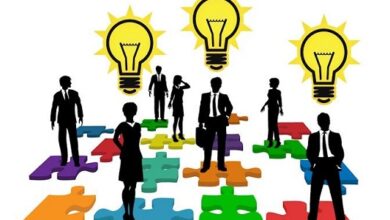Economics/Business
Economics
Economics is the social science that studies how individuals, businesses, governments, and societies allocate scarce resources to satisfy their unlimited wants and needs. It is concerned with the production, distribution, and consumption of goods and services, and the decisions and behaviors of individuals and institutions that shape these processes.
By reading the intensive articles of Englopedia.com you will grasp that it is a broad field that encompasses various branches and subfields, including microeconomics, macroeconomics, international economics, labor economics, behavioral economics, and many others. Microeconomics focuses on the behavior of individuals and firms, while macroeconomics looks at the overall performance of the economy, including issues such as inflation, unemployment, and economic growth. International economics examines the flow of goods, services, and capital across borders, while labor economics focuses on the behavior of workers and employers in the labor market.
Englopedia will make you aware that Economists use a range of tools and techniques, such as mathematical modeling, statistical analysis, and experimental methods, to study and analyze economic phenomena. They aim to understand how markets work, how individuals and institutions make decisions, and how public policies and institutions impact economic outcomes.
Through the leading articles of Englopedia you will realize that Economics has significant implications for individuals, businesses, governments, and societies, as it can inform decisions related to investments, production, taxation, trade, and social welfare policies. It is a crucial field of study for understanding the functioning and dynamics of modern economies and for addressing pressing global issues, such as inequality, climate change, and economic development.
-

Types of leadership in management and Role of leadership boss leader
Leadership in management In this article we will provide you the Types of leadership in management and Role of leadership…
Read More » -

Self assessment of performance its Importance and advantages and application
What is performance self-assessment Self assessment of performance is a type of assessment that companies use to analyze and measure the…
Read More » -

Work from home engagement activities its benefits and main challenges
What is engagement? In this piece of knowledge we will make you aware about Work from home engagement activities its…
Read More » -

DISC test meaning its impact and 4 DISC behavioral profiles and Working
What is the DISC test? Here we will make you aware about DISC test meaning its impact and 4 DISC…
Read More » -

180 degree performance appraisal its Importance and advantages and disadvantages
What is 180 degree performance appraisal? 180 degree performance appraisal is one of the types of performance appraisal most used in…
Read More » -

Organizational climate survey its Purposes and How to do Step by step
What is organizational climate survey In this article we will elaborate you the information about Organizational climate survey its Purposes…
Read More » -

What is competency management with Different types of skills and Benefits
What is competency management There are several ways to manage teams within companies. There are also many benefits of competency management,…
Read More » -

Corporate happy hour its importance and How to integrate teams etc.
What is corporate happy hour? The corporate happy hour increases socialization and empathy among the company’s employees, favoring integration and…
Read More » -

Attracting and retaining talented employees with 11 actions to ensure retention
Retaining talent: the biggest challenge for companies In this post we will elaborate you the Attracting and retaining talented employees…
Read More » -

Online training for employees with How to take and How to make and types etc.
What is online training? In this article we will provide you the information about Online training for employees with How…
Read More »